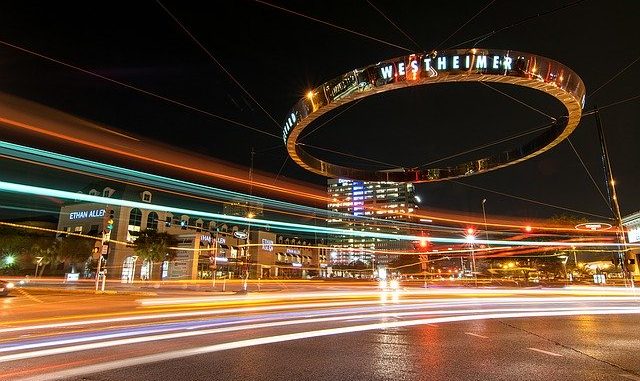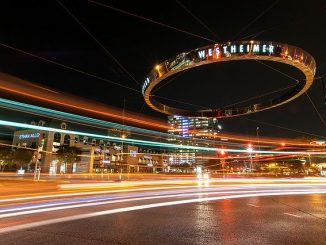
In Sunday’s print and subscriber edition of the Houston Chronicle, longtime Chronicle business writer L.M. Sixel posted a justifiably optimistic story about the Houston-area real-estate market. The resurgence of the oil and gas industry, thanks to revolutions in hydraulic fracturing, has made its effect felt all across Texas, with the state unemployment rate (according to a Wikipedia page) at 6.4 percent. Vehicles with license plates from outside Texas are not uncommon sights, and real-estate developers are putting up new structures all over the Houston area.
Amongst the optimism, however, Ms. Sixel for some reason decided to push the tired old story that light rail drives real-estate development, despite the evidence to the contrary. Indeed the Chronicle itself posted the most recent failed real-estate story concerning light rail just two weeks ago, reporting that a developer terminated a 316-unit apartment-complex deal that was to be located near a light-rail station on Harrisburg. Any real-estate development that does occur near these light rail lines might well be incidental. These developments might have been built regardless of whether METRO had built rail lines or not.
Who is Matthew Deal? What the Chronicle omitted
But the real story in Ms. Sixel’s post is not necessarily arguing over whether light rail promotes development. The real story is whom she sought out for this opinion — a fellow named Matthew Deal, identified as “a partner with Deal Sikes & Associates in Houston, commercial real estate appraisers and consultants.” What Ms. Sixel does not post in her story is that Mr. Deal has been employed by the Metropolitan Transit Authority (METRO) as their director of property condemnation and real-estate appraisals of properties along these light-rail lines. The Business Wire story goes on to note that METRO has condemned some 400 properties along these rail lines, which no doubt has provided Mr. Deal with a very handsome income. It also seems Mr. Deal has been in the government-property-condemnation business for quite a while.
If METRO, the Houston Chronicle, and the politically powerful light-rail constituency want to continue to peddle the tired, questionable mantra that light rail promotes real-estate development, it would really help their case if they were to use someone who is not feeding at the transit-agency trough!




And how many of these big oil companies are near the Dangertrain again? Many are out on I-10. Exxon is in The Woodlands as is Anadarko, even Hess is several blocks away. So again how does the dangertrain benefit O&G companies?
An addendum:
So, how much is Mr. Deal’s condemnation contracts with METRO worth? How about $5.5 million?
CONTRACT AWARD Detail
Solicitation Number: RQ0900005
Solicitation Title: Appraisal Review Services
Date Closed: 4/16/2009 12:00:00 AM
METRO Commodity Code(s):
V1, Real Estate Services
1. Contract No. CT0900090
Award Date: 11/2/2009 12:00:00 AM
Award Amount: NTE: $5,504,715.00
Note:
Company: Deal-Sikes & Associates
{Business address redacted – Neal]
Contract Administrator: Kevin E. Moore
With the obvious failure of Obamacare, it is evident that special interests pushing their community agenda does not mean the community wants / needs the program. Houston voters voted FOR the transit program extension using Westpark, ( as was on the ballot ), not Richmond Ave. The continued pie-in-the-sky efforts to ram a rail line through Richmond neighborhoods by Metro and other nanny state planners is as transparent for special interest(s) as is the unachievable Obamacare health program. Enough is enough with the myriad number of deals Metro made without public scrutiny, lack of ridership demand / proof for service and massive disruption of Houston neighborhoods – for what ? Common sense should dictate the future of mass transit and it is not rail inside the city . As the larger corporations flee the central part of the city for the suburbs, Metro needs to address getting those people in / out of the city as well as potential disposable income from visitors and convention attendees – not getting a handfull of people across town. Mass transit is not a right, it is a convenience and should be treated as such from our elected officials. It is time to ” ride ” the Richmond Line out of town once and for all.